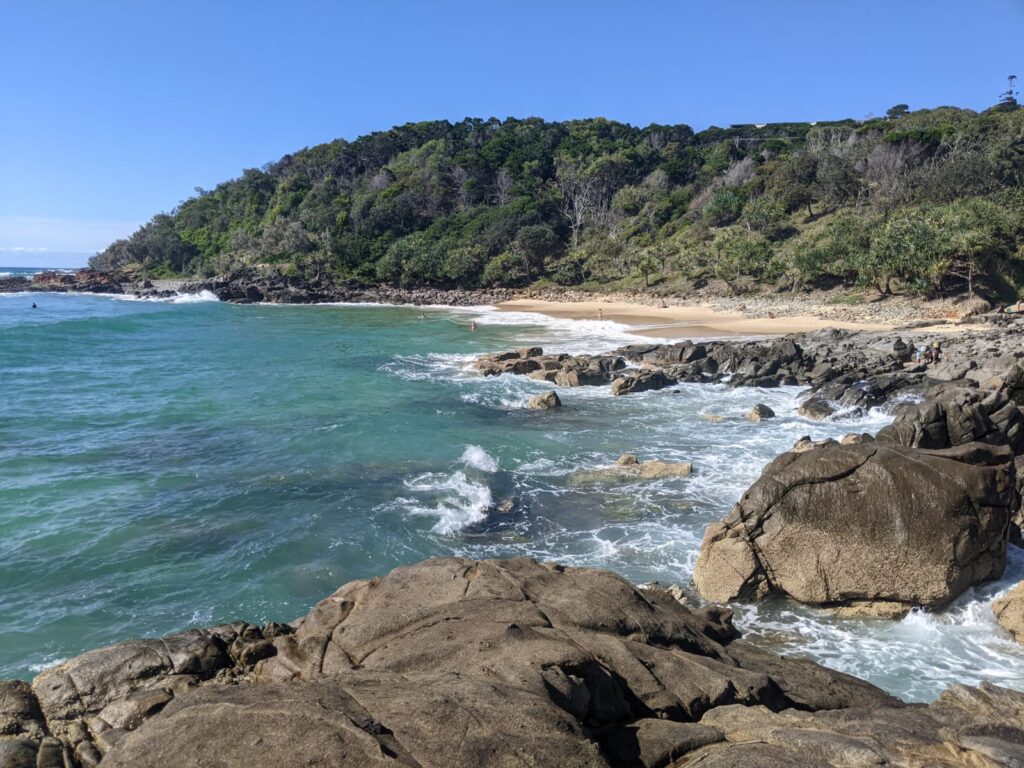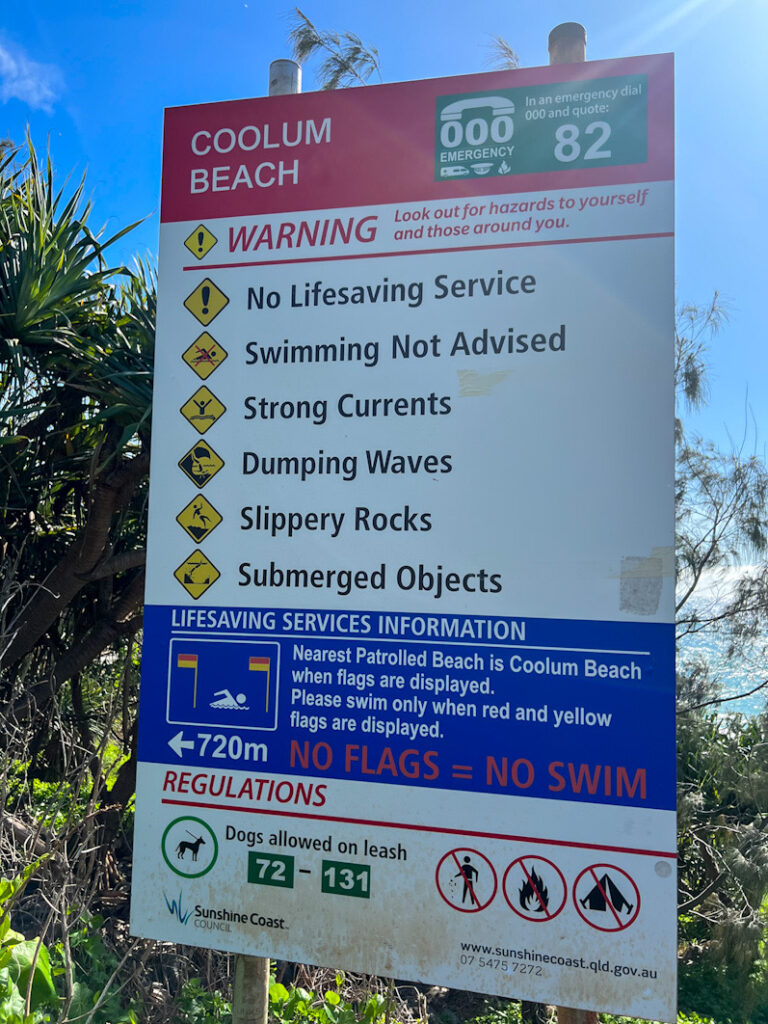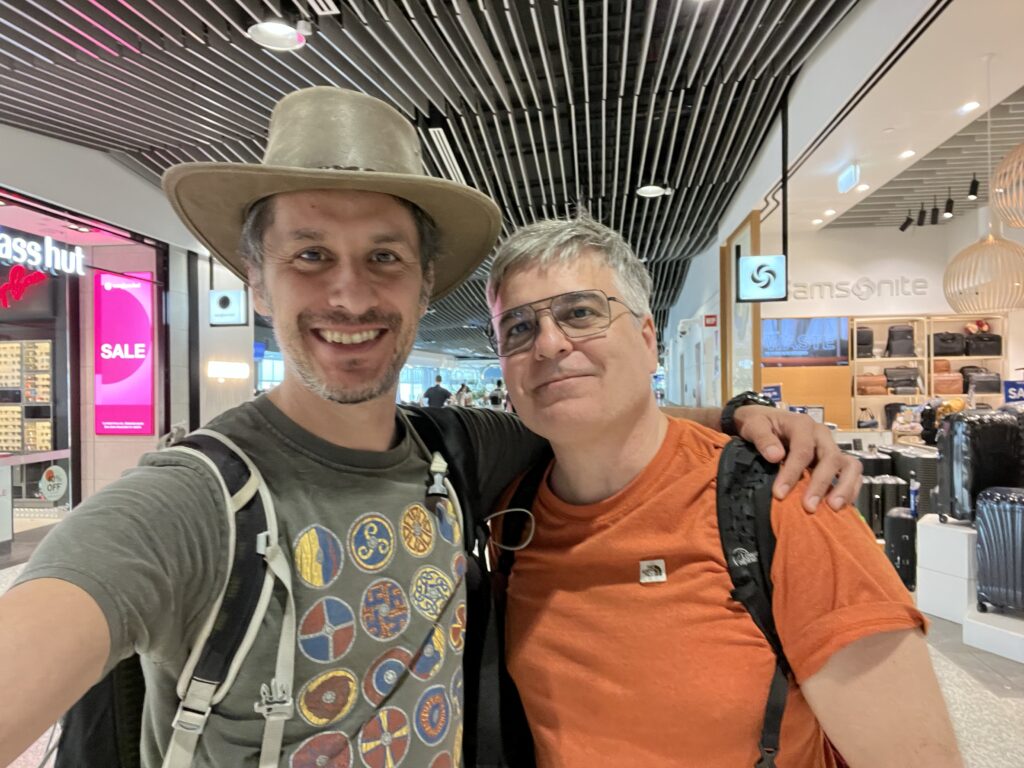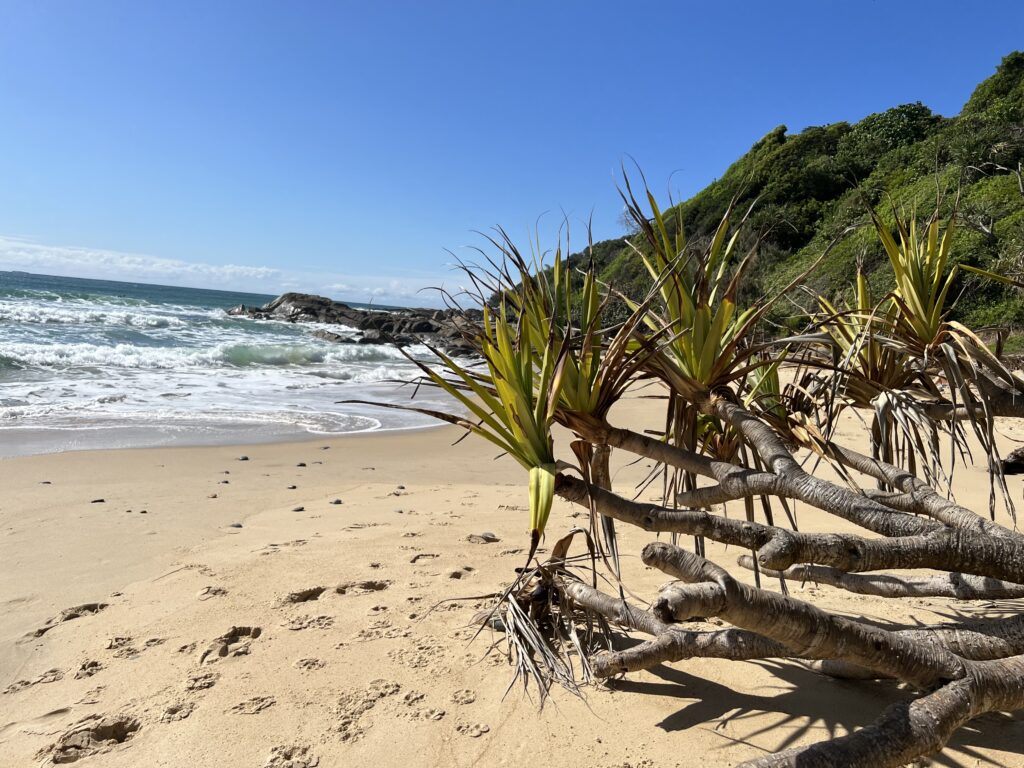As we return to Brisbane to drop off the Buzz Bus, we stop for a celebratory ice cream and a dip in the Pacific Ocean in the beautiful coast of Eastern Australia. Surfers float waiting for bigger waves and signs on the beach warn potential swimmers to look for another place to dip their toes as the list of potential dangers is long here. It is early and few people have descended on the beach yet. The gorgeous Pandanus hold on to the shallow soil between the rocks and sand. The water is cool and the sun harsh and we chat the time away. By the time we return the Buzz Bus at Brisbane airport we have driven more than 2,600 km in Eastern Australia alone.


I am excited to go back home in Sweden after three weeks away from my family. It has been hard to keep up with news at home, and I had barely been there three weeks since our big move from Scotland. The Australian trip has been amazing. So long in the planning and delayed for years, and it somehow has now passed so fast.
I have learned a lot about the plants, wildlife, and people of Australia. The mysterious continent has lived up to my expectations of natural wonder, and David and Daniel, my project collaborators and travel partners, have been amazing. Spending three weeks driving and working in the constrained space of a campervan brings its challenges and rewards, and I feel we have built our friendship and shared so many fun and amazing experiences together. Thanks guys!

Now the slog of the return trip begins. The distance I must travel to go back home, including several flight connections, amounts to 19,631 km.
The end of the fieldwork component of the project means the start of the next phase. We will have to identify the species we studied with the help of Australian bee experts. I will have to process and analyse the thousands of buzzes we collected and to do that I need to write and refine methods that enable to recognise buzzes automatically. It will be some time to do these analyses and then we get a chance to test our hypotheses and make inferences of what we have found in this project. At the end we hope to have a paper to tell others about our scientific discoveries. Each part, from the conception of the project, to fieldwork, analysis, and write-up, has aspects that I love. Doing science is fun, and I certainly feel lucky that I get to do this for a living. Thanks for funding this expedition to Australia National Geographic!
